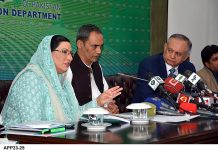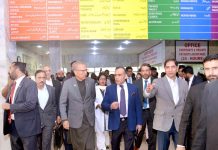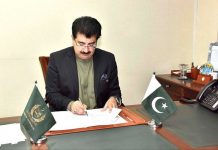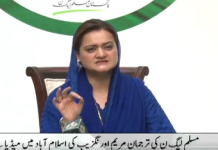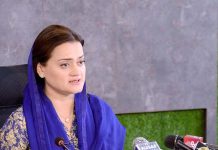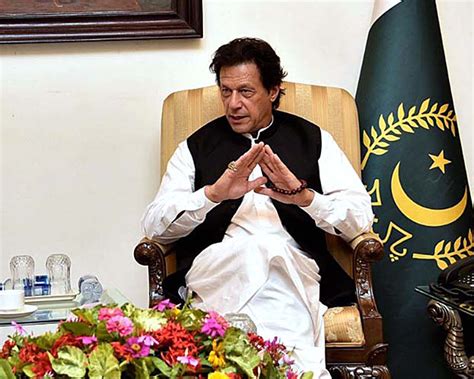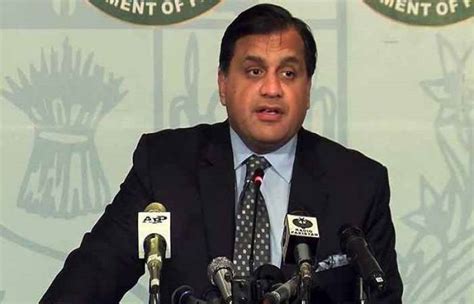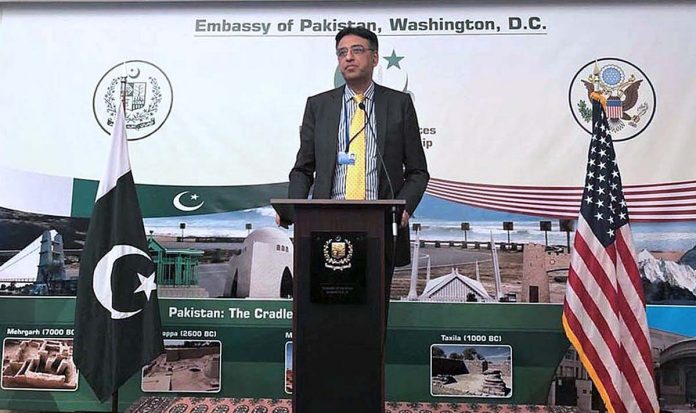ISLAMABAD: Pakistan on Thursday asked India to stop violating human rights in occupied Kashmir.
It also called for the early resumption of foreign secretary-level talks with India, which were scheduled to be held in mid-January but wee deferred due to an attack on Indian air base of Pathankot. The date for the meeting should now be finalised as early as possible following the Indian policy statement of not linking the talks with the progress in investigation on the Pathankot incident, Foreign Office spokesperson Muhammad Nafees Zakria said at a weekly news briefing. The FO spokesperson said both countries are in contact on last month’s terror incident in the Indian state of Punjab but no date has been fixed yet. Replying to a question regarding the arrest of Kashmiri students at Jawaharlal Nehru University, the spokesperson said that the Kashmiris had never accepted the unfair trial of Afzal Guru.
Pakistan had always voiced concern over Indian atrocities against the people of occupied Kashmir and raised the issue at all the world forums. He also said that Pakistan has adequately and appropriately raised the Kashmir dispute at all international forums. The FO spokesperson reiterated that Daesh, Arabic acronym for Islamic State, did not exist in the country. Answering another question, Zakria said Pakistan condemned the bomb attack on a military convoy in Istanbul on Wednesday, saying that Turkey was a close friend of Pakistan and the loss of precious lives in the terror act there made “us remember martyrdom of thousands of civilians and military personnel, who have become victim of terrorism in the country”.
About the Afghan reconciliation process, he said efforts were on by the Quadrilateral Coordination Group (GCG) comprising representatives from Afghanistan, Pakistan, China and the United States to bring the Taliban back to the negotiating table. He said the next meeting of the group would be held in Kabul on February 23 to review the efforts made in this regard. The QCG aims to facilitate dialogue between the Afghan government and the Afghan Taliban. The four-nation process was established in December on the sidelines of the Heart of Asia Conference agreeing to devise a mechanism under which they could work together for the resumption of the reconciliation process.
Answering another query, the spokesperson said Pakistan had adopted a principled stand on the Syrian crisis, as it desired amicable solution of the issue. Pakistan respected the solidarity and integrity of Syria and wanted resolution of problems of all the groups through talks. Pakistan, he said, supported the 34-member Saudi-led coalition as it was made to counter terrorism. The decision with regard to Pakistan’s role in the anti-terrorism coalition would be taken at an expert-level meeting, he added.
To a question, he said Pakistan enjoyed friendly ties with Saudi Arabia. A large number of Pakistani expatriates were working in the kingdom and the two countries had an agreement for the welfare of these workers, he added. The number of high-level visits between the two countries after the Yemen conflict showed the warmth of the relations and harmony, he said. The spokesperson said Pakistan was an important country because of its geographical location and work was in progress for building a transit route to link regional countries under the prime minister’s vision.
Regarding Russian President Vladmir Putin’s visit to Pakistan in May this year, the spokesman said no dates have yet been decided. However, Pakistan “would welcome this visit whenever it is announced”. When asked about US State Department’s concerns on the security of Pakistan’s nuclear arsenal, the spokesperson said it was safe and in secure hands. Washington itself had repeatedly in the past expressed complete satisfaction over its security, he added.

